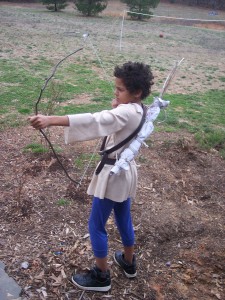 I’m so excited about a local group I just found that I’m having my 13-year-old theater son attend. It’s a theater- and art-infused focus on history. The premise is that the group will take an area of history and learn about it through theater and art. You choose to be part of either a theater or art class for the first 1.5 hours, which allows enough time to really delve in. At the end of the semester, there will be a play and an art presentation for the public to attend. A lunch time is next, followed by three 45-minute enrichment classes. My son is taking a hands-on science class, a Japanese art class, and a medieval weapons-making class. Do you know how hard it is to find such a gem in the learning world? Let me explain.
I’m so excited about a local group I just found that I’m having my 13-year-old theater son attend. It’s a theater- and art-infused focus on history. The premise is that the group will take an area of history and learn about it through theater and art. You choose to be part of either a theater or art class for the first 1.5 hours, which allows enough time to really delve in. At the end of the semester, there will be a play and an art presentation for the public to attend. A lunch time is next, followed by three 45-minute enrichment classes. My son is taking a hands-on science class, a Japanese art class, and a medieval weapons-making class. Do you know how hard it is to find such a gem in the learning world? Let me explain.
With the popularity of homeschooling, classes and co-ops and specialized classes are all around us. But I’ve noticed that most of the time “classes” are offered in a block of time, it’s usually set-up like you see in public school. Traditional classes are offered, like the sciences, or maths, or writing, or a foreign language. Often, they find qualified teachers in the area or within the homeschooling community to teach these classes. A fee is usually involved that’s often a significant amount of money. There’s usually homework and grades. In other words, the homeschooling community offers the opportunity, usually one time a week, to go to a typically-structured school. For a considerable fee. Why? Why would I do this? If I wanted this, why wouldn’t I put my child in public school…for free? I understand there are benefits…smaller class sizes, serious parental involvement, social and behavioral expectations, etc. But one key element is missing for me…passion-inspired learning.
In my book, I share the following story in Chapter Six:
My builder son and I arrived at his piano lesson. As usual, my son entered the music room, immediately sat down, and began to play around with music until the instructor was ready to begin. The music mentor sat down, listened to what my builder son was doing, and started imitating him on the other piano in the session room. My son noticed and smiled. The instructor changed rhythms, tempos, etc., and my builder son followed suit without a word between them. They “jammed” like this, learning spatial rhythms and patterns together throughout the half-hour lesson. Suddenly, the mentor realized the time and jumped up, ending the session on behalf of his next student. My builder son and his mentor walked into the lobby and discovered the student wasn’t there. The instructor gleamed at my son, exclaiming, “Do you want to go back in and continue?”
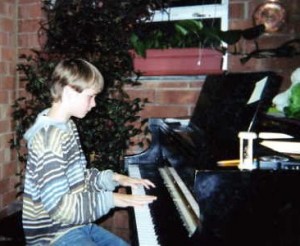 Passion. Enthusiasm. Creativity. No formal lesson was given, but a lot of learning occurred. A lot of traditional music teachers follow a certain program, focus on theory, and make sure the student has proper form. I instinctively knew that wasn’t the type of person my builder son needed to nurture his musical talent. We actually tried one and it ended miserably after a few attempted lessons. My son’s enthusiasm for music showed signs of breaking that quickly.
Passion. Enthusiasm. Creativity. No formal lesson was given, but a lot of learning occurred. A lot of traditional music teachers follow a certain program, focus on theory, and make sure the student has proper form. I instinctively knew that wasn’t the type of person my builder son needed to nurture his musical talent. We actually tried one and it ended miserably after a few attempted lessons. My son’s enthusiasm for music showed signs of breaking that quickly.
I found it important to find music mentors, or practicing musicians, who enjoyed sharing their passion with my son as another musician, albeit a less experienced one. When I found the studio full of practicing musicians, I sensed a shift in perspective. Practicing musicians tend to “share their strategies” versus “teach a particular way.” The surge of growth and learning in my son’s musical ability within a few sessions proved he was in a well-matched learning environment.
Creative development and expression are at the heart of how a right-brained child learns. It’s easy to tell when the right resources or activities are found. The very act of using the resource or doing the activity enhances and develops the strengths and gifts within the person involved. That’s what I saw with the right music mentor resource. That’s what can be seen in all right-brained children when the activities inherently equipped to enhance and develop their strengths and gifts are the foundation in their lives.
This is the same kind of thing I sensed at this new group. The purpose wasn’t to have the teachers enforce a set amount of knowledge into the minds of the students to be regurgitated in a particular manner that would be assessed as to its value. The purpose for these instructors is to share their passion in a way for the student to live and experience the quality of the era that would allow the child to express his or her knowledge in an individual manner to be showcased for others to be inspired. Now that’s worth paying some money for! My right-brained theater son tends to shrink in typical classroom settings. But he sailed through each of these “classes” with enthusiasm and eagerness at what he was experiencing and learning.
I’ve also been involved with a co-op for about 1.5 years and travel 1.5 hours one way to attend. Why? Why would I do that? Again, because it’s hard to find a group that focuses on passion-inspired learning. We just had our planning meeting for the year at a local park and one of the things we did was to go around the circle and describe the things that each parent loves to do. In this way, if any of us know of something their child wants to know about, maybe it can match with someone’s talent in the group.
The structure of the group is to have two 45-minute classes, with a lunch in between. The classes are usually centered around an interest of what some of the children may have expressed to a parent. We then find someone interested in providing it. The structure of the class tries to be about a collaborative, hands-on approach to learning so that the children can enjoy learning together, with the “teacher” usually mentoring them in the focus of the class. The last great feature is that an hour or two is left at the end time just for open interaction in order to have time to really develop friendships.
There’s a big difference in the way my children act, respond, and learn in a passion-inspired learning environment versus a teacher-enforced one. In a passion-inspired learning environment, there’s an assumption and even an expectation that the children have something viable to contribute to the learning experience. I notice that these mentors want to facilitate the children in leading out in the product the individual or group may be creating. A teacher-enforced learning environment assumes and even expects the children to need the information to be imparted to them and taught in order to learn.
In a passion-inspired learning environment, the culmination of the experience is an actual opportunity to share with others who may be interested in all that they learned in a meaningful presentation, whether that be putting on a play, creating a weaponry demonstration, being part of an art exhibit, or entering a local contest. In a teacher-enforced learning environment, the children will be tested, usually in writing all in the same room, which will result in a single grade.
In a passion-inspired learning environment, each child is encouraged to find where their gifts are best suited and build from there, or allowed to bring their own creativity to a product, or motivated to self-explore in order to learn from the discovery process. In a teacher-enforced learning environment, all the products will be identical and graded according to being closest to reaching that goal of perfection.
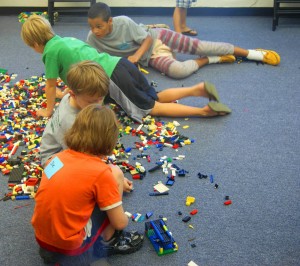 In a passion-inspired learning environment, the interests of the students matter and steer the learning process which ignites a love of learning. In a teacher-enforced learning environment, the curriculum or scope and sequence steer the teaching structure which creates a dependence on instruction.
In a passion-inspired learning environment, the interests of the students matter and steer the learning process which ignites a love of learning. In a teacher-enforced learning environment, the curriculum or scope and sequence steer the teaching structure which creates a dependence on instruction.
In a passion-inspired learning environment, there’s freedom of speech, freedom of opinion, freedom of individuality, freedom of expression…freedom. In a teacher-enforced learning environment, there’s little student voice, creativity, or innovation.
Passion-inspired learning environments are hard to find in group settings, but they are out there; you just have to look carefully. And when you find it, grab it and enjoy!
What are the passion-inspired groups you’ve found like? What are more advantages to passion-inspired learning?

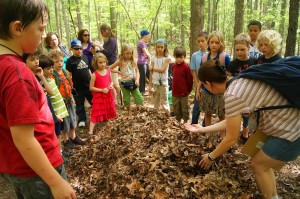
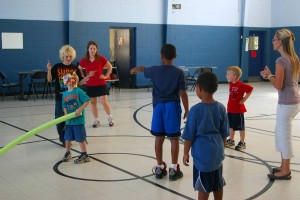


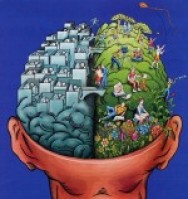

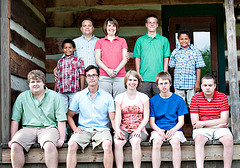
Pingback: Dressing Up Medieval-Style | Apple Stars
Pingback: Your Child Might Be Right-Brained If … | The Right Side of Normal